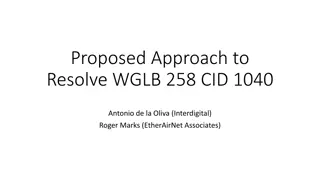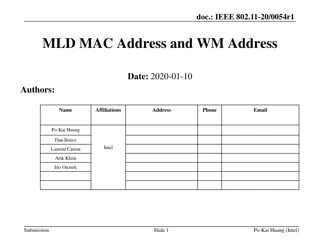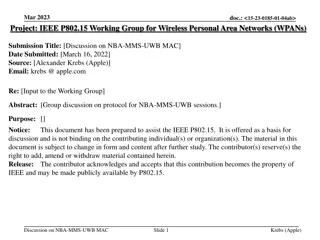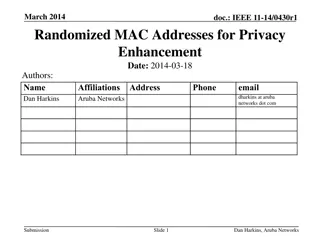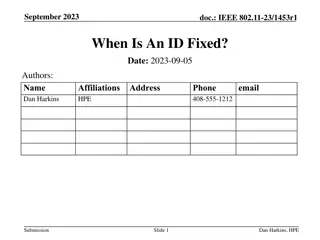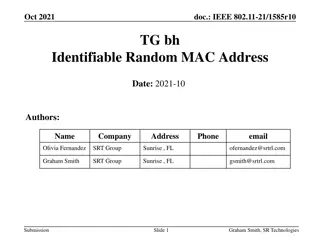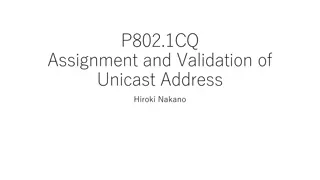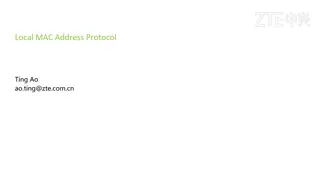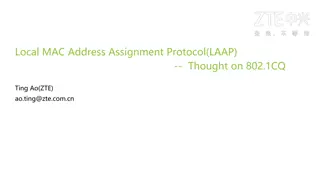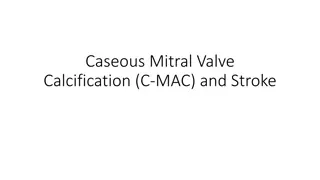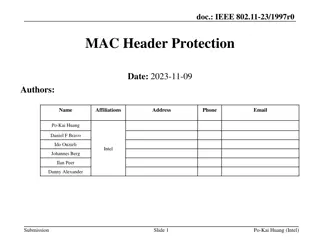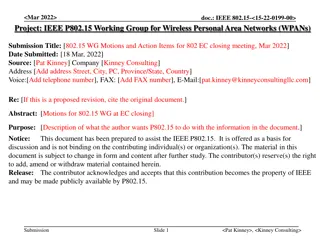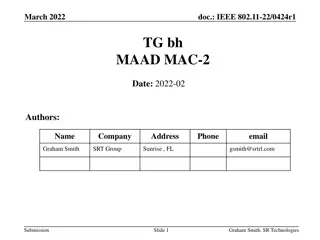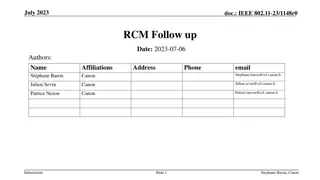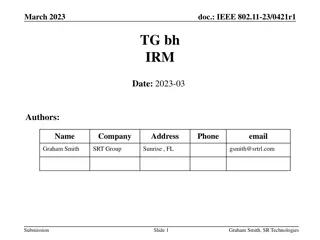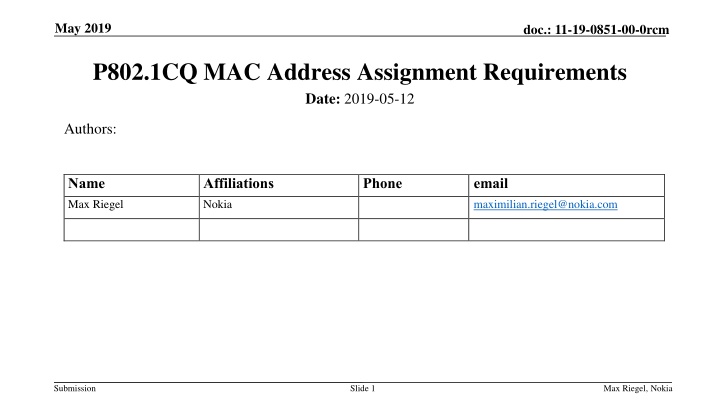
IEEE 802.1CQ MAC Address Assignment Requirements
Explore the impact of randomized MAC addresses in IEEE 802 networks with the IEEE 802.1CQ standard. Learn about protocols, procedures, and address assignment for 48-bit and 64-bit addresses. Delve into discussions on random address issues in OmniRAN TG and the implications of static device identifiers. Discover the significance of MAC randomization and the need for fixed device identifiers in access networks.
Download Presentation

Please find below an Image/Link to download the presentation.
The content on the website is provided AS IS for your information and personal use only. It may not be sold, licensed, or shared on other websites without obtaining consent from the author. If you encounter any issues during the download, it is possible that the publisher has removed the file from their server.
You are allowed to download the files provided on this website for personal or commercial use, subject to the condition that they are used lawfully. All files are the property of their respective owners.
The content on the website is provided AS IS for your information and personal use only. It may not be sold, licensed, or shared on other websites without obtaining consent from the author.
E N D
Presentation Transcript
May 2019 doc.: 11-19-0851-00-0rcm P802.1CQ MAC Address Assignment Requirements Date: 2019-05-12 Authors: Name Affiliations Phone email Max Riegel Nokia maximilian.riegel@nokia.com Submission Slide 1 Max Riegel, Nokia
May 2019 doc.: 11-19-0851-00-0rcm Abstract This presentation provides a brief summary of the conclusions for P802.1CQ out of the discussions on impact of randomized MAC addresses at the 802.1 OmniRAN TG Jan 2019 interim meeting. P802.1CQ: Standard for Local and Metropolitan Area Networks: Multicast and Local Address Assignment This standard specifies protocols, procedures, and management objects for locally-unique assignment of 48-bit and 64-bit addresses in IEEE 802 networks. Peer-to-peer address claiming and address server capabilities are specified. Submission Slide 2 Max Riegel, Nokia
May 2019 doc.: 11-19-0851-00-0rcm Random address discussions in OmniRAN TG Triggered by WBA liaison to IEEE 802.11 and Wi-Fi Alliance https://mentor.ieee.org/802.11/dcn/18/11- 18-1579-01-0000-2018-09-liaison-from- wba-re-mac-randomization-impacts.docx Issue arises through binding of a human user with the terminal interface identifier (MAC address) No major issue when user isn t related to a human, e.g. if user is a control unit of a robot in a factory. Submission Slide 3 Max Riegel, Nokia
May 2019 doc.: 11-19-0851-00-0rcm IEEE 802.1 Assumptions Bridging protocols (main scope of IEEE 802.1) assume that MAC addresses of end-stations do not change while being connected to a bridge. From Association to Disassociation P802.1CQ is currently the only 802.1 project dealing with end- station behavior Formerly, protocols for end-stations were out of scope for 802.1 Submission Slide 4 Max Riegel, Nokia
May 2019 doc.: 11-19-0851-00-0rcm P802.1Q position on MAC randomization Discussion slides: https://mentor.ieee.org/omniran/dcn/19/omniran-19-0002-00-CQ00-random-mac- impact.pptx Agreement reached that WBA use cases are legitimate reasons to provide the possibility to assign static device identifier to stations for initiating the dynamic MAC address assignment Static device identifier allows LAAP to assign fixed MAC addresses to devices. Conclusions: Protocol proposal will allow for secure signaling of a static device identifier to the access network Functional requirements section will describe the need to provide the possibility of fixed device identifiers Submission Slide 5 Max Riegel, Nokia

